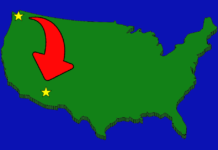
Due to the shortage of the H1N1 vaccine, Pinal County has distributed the first several shipments of vaccine to healthcare providers because they have the ability to identify those who are in the highest priority groups.
This has allowed the vaccine to be available at more than 40 locations throughout the county simultaneously. In addition to these efforts, the Public Health District is going to elementary schools and offering vaccine to children who have been identified by school health officials as having chronic medical conditions that would put them at greater risk.
To date more than 14 schools have been served. This campaign will continue until supply of the vaccine is adequate to begin offering vaccine to the general public. Pinal County has a plan to conduct several mass vaccination clinics, once sufficient supplies of the vaccine arrive. The sites, dates and times for these clinics will be announced on the county’s website, flu hotline and through press releases.
“Pinal County represents four percent of the total population of Arizona so as vaccine is released to the state, we get four percent of that allocation,” Tom Schryer, Pinal County Public Health Director, explained. “Some weeks that can be less than 2,000 doses. When compared to a population of more than 350,000, 2,000 doses simply won’t to scratch the surface so there is pent up demand.”
Pinal County is committed to protecting the most vulnerable residents while vaccine is in short supply. When supply becomes available, Pinal County Public Health is prepared to vaccinate every resident who wants the H1N1 vaccination.
The number one goal in health and medicine is to prevent death, Schryer said. Because H1N1 disproportionately affects young people with underlying health conditions and pregnant women, the health care providers have done an excellent job of identifying those in these risk categories and vaccinating them.
“I hear stories of doctors calling the parents of children with asthma and asking them to bring their son or daughter for the vaccine,” he said. “When I hear that, I know that they are really trying to protect the most vulnerable.”
“As more supply becomes available, we can shift from the first goal of preventing death to providing protection to people at risk of infection,” Schryer added. “Today, all state and federal statistics point to the need to get pregnant women and children with serious medical conditions vaccinated first.”
Pinal County has an H1N1 Information Hotline with a recorded message featuring the latest H1N1 flu news. For the most recent information on vaccine availability within your area of Pinal County, please call the H1N1 Information Hotline toll free 1-888-840-8795 for English or 1-888-840-8796 for Spanish.
Click here for the county’s special web page on H1N1.
File photo

![Rizz party organizers say city ‘lying’ One of several flyers for a "TikTok rizz party" is taped to a door in the Maricopa Business Center along Honeycutt Road on April 23, 2024. [Monica D. Spencer]](https://www.inmaricopa.com/wp-content/uploads/2024/04/spencer-042324-tiktok-rizz-party-flyer-web-218x150.jpg)
![Province writer opens the athlete’s mind in new book Tom Schuman, a Province resident, poses with a copy of his new book, "My Wide World of Sports," outside his home on May 2, 2024. [Monica D. Spencer]](https://www.inmaricopa.com/wp-content/uploads/2024/05/spencer-050224-tom-schuman-sports-book-web-01-218x150.jpg)








![Maricopa restaurateur makes Food Network connection [Namkeen Dhaba]](https://www.inmaricopa.com/wp-content/uploads/2024/04/439456716_377105198650519_7536248579664805896_n-218x150.jpg)
![Merging lanes incite more 347 anger A merging lane sign sits on the side of State Route 347 northbound lanes during evening traffic on April 30, 2024. [Monica D. Spencer]](https://www.inmaricopa.com/wp-content/uploads/2024/04/spencer-043024-adot-merging-lanes-347-web-218x150.jpg)
![Rizz party organizers say city ‘lying’ One of several flyers for a "TikTok rizz party" is taped to a door in the Maricopa Business Center along Honeycutt Road on April 23, 2024. [Monica D. Spencer]](https://www.inmaricopa.com/wp-content/uploads/2024/04/spencer-042324-tiktok-rizz-party-flyer-web-100x70.jpg)


